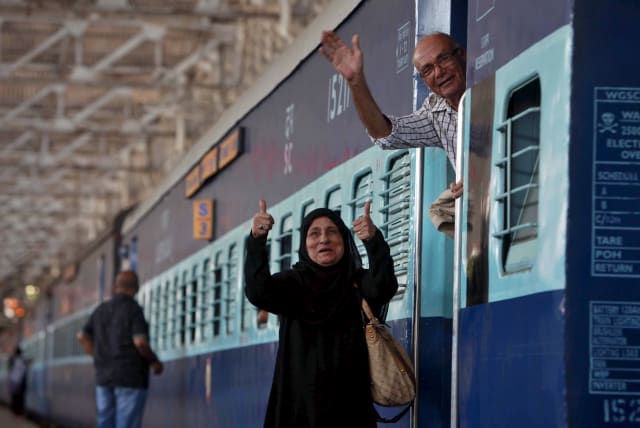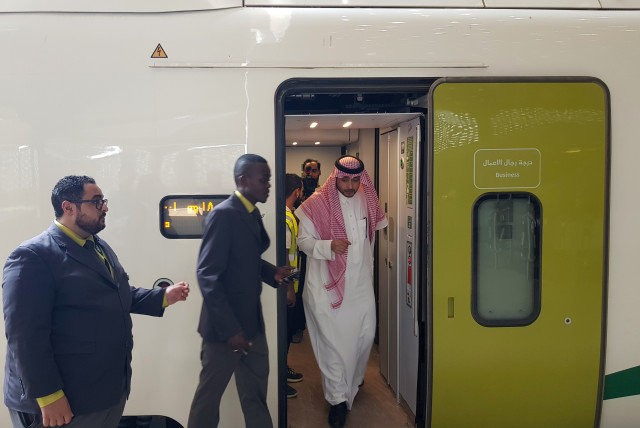US, Saudi Arabia, India discuss possible Middle East rail, port deal

If Saudi Arabia and Israel normalize ties, Israel could be linked into the rail deal.
The US, Saudi Arabia, India and other nations are discussing a possible infrastructure deal that could reconfigure trade between the Gulf and South Asia, linking Middle Eastern countries by railways and connecting to India by port, according to US officials aware of the conversations.
The talks, which have also included the United Arab Emirates and Europe, may or may not yield a concrete result in time for an announcement on the sidelines of this week's Group of 20 (G20) leaders meeting, the people said.
The conversations have been underway for months but are fluid, one of the people said.
US President Joe Biden is on his way to the G20 conference in New Delhi, India, where he is set to meet Indian Prime Minister Narendra Modi and may also have talks with Saudi Crown Prince Mohammed Bin Salman.
Railway would counter Chinese infrastructure plans
The plans for a sweeping, multi-national ports and rail deal would come at a critical time. To counter China's Belt and Road global infrastructure push, Biden is pitching Washington as an alternative partner for and investor in developing countries at the G20, especially in the Indo-Pacific region.
It also comes as the Biden administration seeks a broader diplomatic deal in the Middle East that would have Saudi Arabia recognize Israel, which could also lead to Israel being a part of the rail project. The negotiations over a multi-country infrastructure deal were first reported by Axios.
In July, Prime Minister Benjamin Netanyahu stated that a planned railway connecting Kiryat Shmona in northern Israel to Eilat in the south could eventually allow Israel to connect by train to Saudi Arabia and the Arabian Peninsula. "We are working on that too,” Netanyahu said.
Beyond the diplomatic implications, officials said they hope such an infrastructure deal could reduce shipping times, cost, the use of diesel and make trade faster and cheaper.
Jerusalem Post Staff contributed to this report.
Jerusalem Post Store
`; document.getElementById("linkPremium").innerHTML = cont; var divWithLink = document.getElementById("premium-link"); if (divWithLink !== null && divWithLink !== 'undefined') { divWithLink.style.border = "solid 1px #cb0f3e"; divWithLink.style.textAlign = "center"; divWithLink.style.marginBottom = "15px"; divWithLink.style.marginTop = "15px"; divWithLink.style.width = "100%"; divWithLink.style.backgroundColor = "#122952"; divWithLink.style.color = "#ffffff"; divWithLink.style.lineHeight = "1.5"; } } (function (v, i) { });

